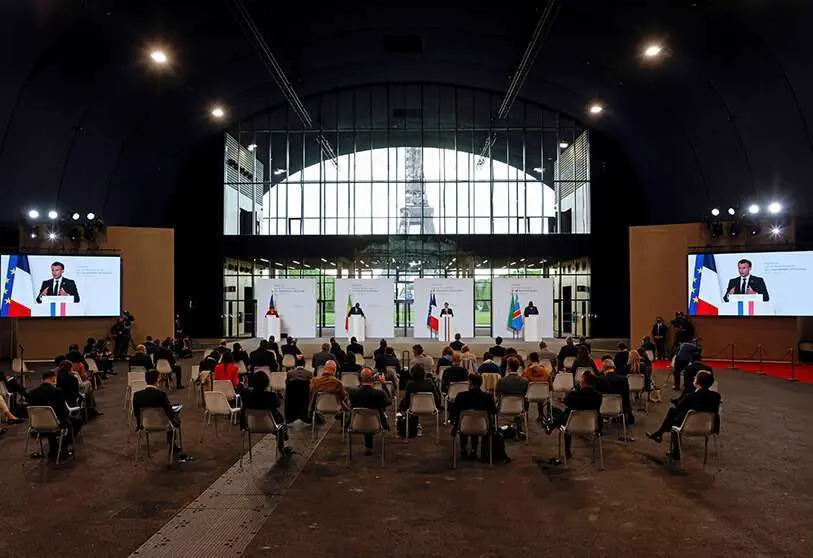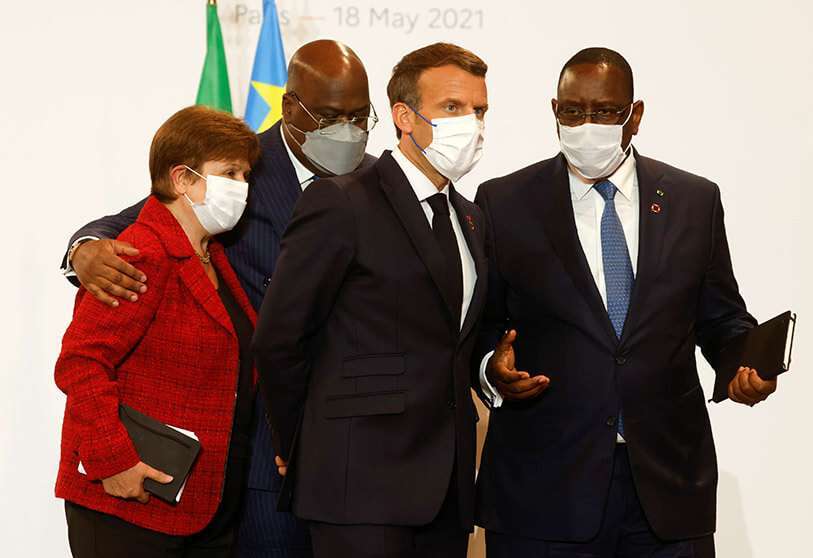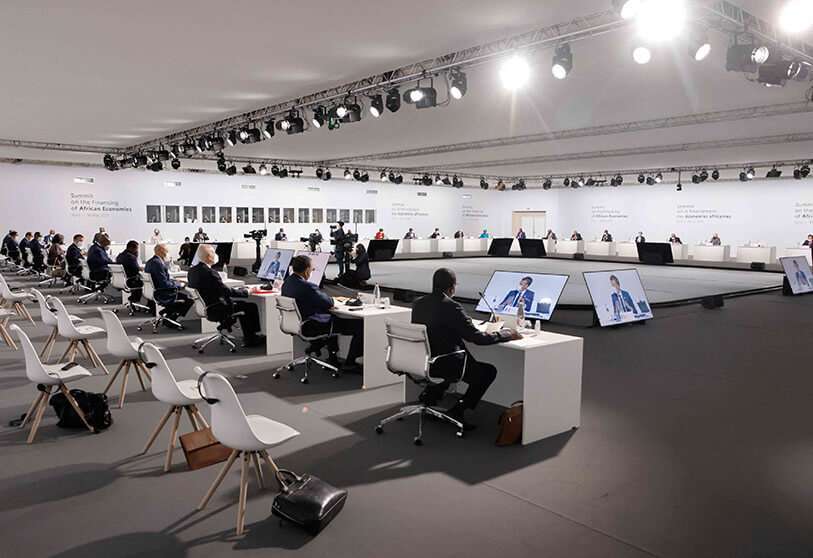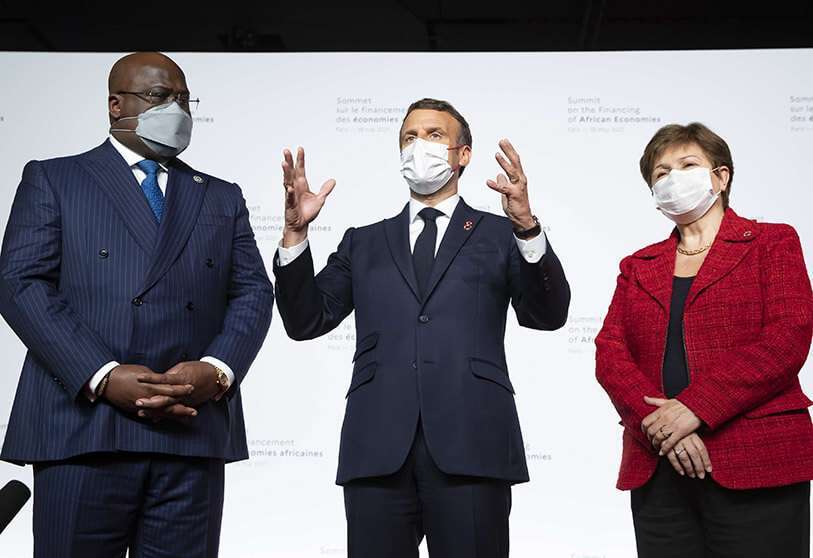International community to mobilise $100 billion for Africa

The international summit, convened on 18 May in Paris, was dedicated to the recovery of African economies, severely affected by the consequences of the health crisis. But above all, it was a call to support Africa's access to vaccination. "The immediate priority is to defeat the pandemic," the leaders at the event wrote in their final communiqué.
Some 30 African and European heads of state and government, as well as the heads of the world's major international institutions, gathered in Paris on Tuesday. The Spanish prime minister, Pedro Sánchez, was initially scheduled to attend, but cancelled his trip because of the migrant crisis in Ceuta.

The way in which COVID-19 is affecting developed countries is the worst harbinger of what lies ahead for the African continent. A continent that has just said goodbye after years of fighting another virus, Ebola. The way in which international organisations and the countries with the greatest capacities support those with the weakest health systems will be key to ensuring that the death toll from this pandemic does not soar there. Doubling the ambition of the international Covax mechanism to vaccinate 40% of the African population this year was one of the main ambitions of the summit participants for African financing.
On the health front, Africa seems to have weathered the worst of the pandemic, with only 130,000 deaths officially counted from the coronavirus across the continent. Africa is a relatively unscathed continent in health terms, with 130,000 deaths from COVID-19, according to official figures, out of a global total of nearly 3.4 million. But it is paying a heavy economic and social price because it has not been able to launch pharaonic recovery plans like richer countries. The managing director of the International Monetary Fund (IMF), Kristalina Georgieva, considered that the ambition to vaccinate Africans (currently estimated at around 2.9 per cent) should be further expanded to reach 60 per cent of the population by mid-2022.

On the economic side, things are very different. Beyond the issue of vaccines, another of the main points raised was to explore mechanisms for mobilising the IMF's so-called stand-by duty (SBA) in favour of Africa and putting in place a comprehensive recovery plan for the continent - a kind of African New Deal, as participants described it. At a time when most rich countries have already adopted massive financing plans worth hundreds of billions of euros, many fear that African economies will be left behind - with all the attendant social and migratory consequences - if nothing is done to help them overcome the current crisis.
This will begin with negotiations in all capitals to meet the pledge of $100 billion, which must come from the IMF. The IMF has to approve in June the issuance of $650 billion (535 billion euros) in Special Drawing Rights (SDRs, the IMF's nominal currency). Africa is entitled to 33 billion dollars, 24 billion of them for sub-Saharan countries. This is clearly insufficient in the face of the region's challenges.

The geopolitics of diplomacy has the power to change the world we live in. Affected economically and socially by the COVID-19 pandemic, Africa experienced a recession in 2020 after a quarter century of continuous growth. According to the International Monetary Fund (IMF), up to $285 billion in additional financing would be needed in the period 2021-2025 for African countries to strengthen their response to the pandemic.
Poverty and food insecurity, underdevelopment and corruption have taken root on the doorsteps of African countries. To these developments must be added the multidimensional crises caused by terrorism and transnational organised crime. African countries fear that this conflict will increase fragilities and tensions in the region and that these threats will be multiplied by the presence of foreign powers.
The COVID-19 pandemic will leave many lessons to be learned in many different areas: from health to labour, through issues related to logistics, but also to leadership and communication, the latter being essential lessons for all crises. Likewise, the request for greater coordination between European states comes at a time when the migratory flow in the central Mediterranean begins to intensify, as it does every year with the arrival of summer.










